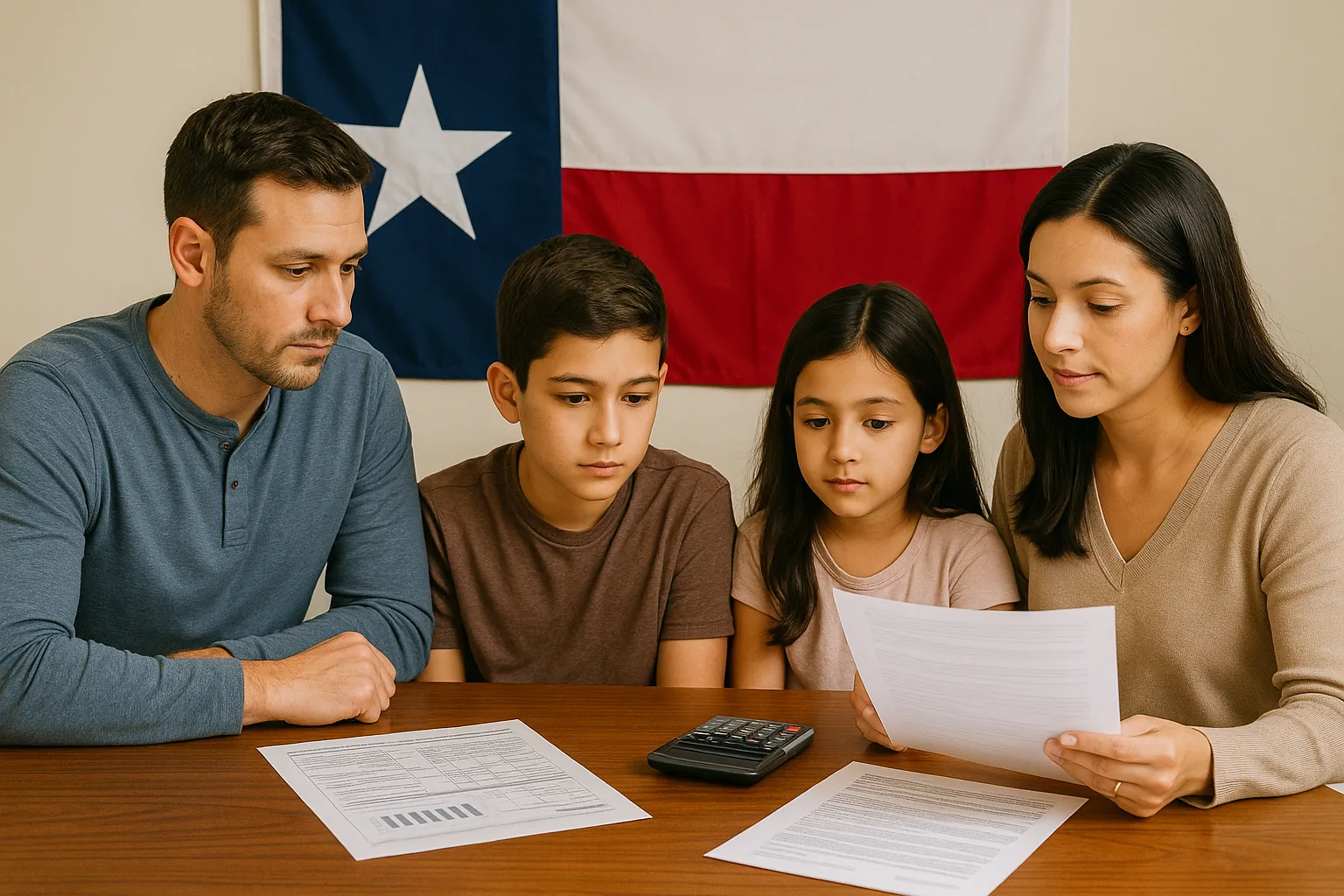Finding Autism Support in Denver, CO: Services, Schools, and Community Resources

Key Takeaways:
- Denver offers strong autism support through therapy providers, school-based services, and statewide programs, but families benefit most when they know where to begin.
- Colorado’s insurance mandates and Health First Colorado (Medicaid) make evidence-based autism therapies more accessible than in many other states.
- Local organizations play a major role in helping families connect therapy, education, financial support, and community living resources.
Getting Started With Autism Support in Denver
For families in Denver, autism support often begins with more questions than answers. With therapy providers, school systems, insurance rules, and state programs all operating at once, it can be difficult to know which steps matter most early on.
A practical starting point is to connect with organizations and systems that understand Colorado’s autism landscape. Groups like the Autism Society of Colorado serve as a central hub for referrals, education, and local guidance. Pediatric providers, early childhood specialists, and school teams are also key entry points for evaluations and next steps.
Beginning with these trusted channels helps families focus their efforts and move forward with greater clarity.
Autism Therapy Services Available in Denver
Denver families have access to a broad range of autism therapy options, and most children benefit from a coordinated mix of services rather than a single approach. Therapy plans are typically shaped by a child’s age, communication abilities, emotional regulation, and daily routines.
Applied Behavior Analysis (ABA) Therapy
ABA therapy is a cornerstone of autism support in the Denver area and is widely recommended for children who need help with communication, behavior, and daily living skills. Rather than following a single formula, ABA programs are designed around each child’s specific strengths, challenges, and learning style.
Denver families can find ABA services offered in a variety of formats, including clinic-based programs, in-home therapy, and limited telehealth options. Care is led by a Board Certified Behavior Analyst (BCBA), who regularly reviews data and adjusts goals to ensure therapy remains effective and appropriate as the child grows. While some children begin with higher weekly hours, many families gradually adapt schedules to better fit school, family life, and changing needs.
Speech and Occupational Therapy
Speech and occupational therapy are commonly layered into autism care plans across Denver, especially when children need targeted support beyond behavioral goals. Speech therapy focuses on helping children communicate more effectively — whether that means building spoken language, improving social communication, or using alternative communication systems.
Occupational therapy (OT) addresses how children interact with their environment. Denver families often seek OT support for sensory regulation, fine motor development, feeding challenges, and daily self-care tasks. When OT and speech services are coordinated with ABA, children are more likely to generalize skills across home, school, and community settings.
Mental Health Support
For some children and teens on the autism spectrum, emotional and mental health support becomes increasingly important over time. In Denver, families may explore counseling or behavioral health services when anxiety, emotional overwhelm, or stress begins to interfere with school performance or social relationships.
These services typically focus on coping strategies, emotional awareness, and stress management. While they are not a replacement for developmental therapies like ABA, speech, or OT, they can play a valuable complementary role — especially for older children and adolescents navigating more complex social and academic demands.
Navigating autism support can feel overwhelming. If you'd like help understanding your ABA options in Denver, we're here to answer questions.
School-Based Autism Support in Denver
Education plays a central role in autism support for many Denver families. Schools often work alongside therapy providers to support learning, behavior, and social development.
Public School Autism Support in Denver
Denver-area public schools provide autism-related services through special education programs for eligible students. These services are delivered through an Individualized Education Program (IEP), which outlines learning goals, accommodations, and related services.
School-based support may include:
- Specialized classroom placements or resource support
- In-school speech or occupational therapy
- Behavioral and social supports
- Sensory accommodations and transition planning
For many families, school services form the foundation of daily support, while therapies such as ABA occur outside school hours.
Private and Specialized Education Options in Denver
Some families explore private or alternative education when public school supports do not fully meet their child’s needs. These programs often emphasize smaller class sizes, individualized instruction, or flexible learning models.
Options may include specialized schools, programs that integrate therapy with academics, or hybrid arrangements that combine part-time schooling with external services. Families considering these options often weigh cost, availability, and coordination with outside providers.
Insurance Coverage and State Autism Programs in Denver, CO
Understanding how autism services are funded can significantly reduce stress for Denver families. Colorado offers strong insurance and state-supported pathways, though access varies by eligibility and provider availability.
Using Private Insurance for Autism Services in Colorado
Many families in the Denver area rely on private insurance to access autism services. In Colorado, many health plans are required to cover autism-related care, including ABA therapy and other medically necessary interventions, but coverage details can vary significantly by insurer and plan type.
Before beginning services, families are typically advised to:
- Confirm whether autism services such as ABA, speech therapy, and occupational therapy are included benefits
- Ask about prior authorization requirements and how often approvals must be renewed
- Review deductibles, coinsurance, and annual out-of-pocket limits
- Verify whether providers are considered in-network, as this can greatly affect cost
Because insurance policies can be complex, many families find it helpful to work directly with a provider’s intake or insurance coordination team. These teams often assist with authorizations, benefits verification, and ongoing communication with insurers to prevent delays in care.
Health First Colorado (Medicaid) and State Autism Programs
For eligible families, Health First Colorado (the state’s Medicaid program) provides access to autism services across the Denver metro area. Covered services may include ABA therapy, behavioral health support, and other developmental services, depending on eligibility and provider availability.
In addition to Medicaid, Colorado offers state-supported programs and Home and Community-Based Services (HCBS) waivers that can help fund therapy, support services, and community-based care. While these programs can significantly reduce out-of-pocket costs, families should be aware that waitlists, enrollment periods, and regional provider capacity may affect access.
Although the application process can take time, state programs play an important role in helping families establish long-term, sustainable support for children with autism.
How to Choose the Right Autism Support in Denver
Choosing autism resources in Denver begins with a clear picture of what your child needs most right now. For some families, that may mean starting with therapy services. For others, school support, emotional regulation, or community-based programs may be the priority. There is no single “right” path, only the one that best fits your child and your family.
Many Denver families find the strongest results when supports work together rather than in isolation. The best programs tend to communicate clearly, adapt as your child grows, and respect the role families play in decision-making.
How to Tell If a Provider Is a Good Match
Three Questions to Ask Before Committing
1. Daily Life Fit
Will this schedule realistically work with school, transportation, and downtime, or does it create ongoing stress for your family?
2. Financial Sustainability
After insurance or Medicaid, what are the true monthly costs? Is this manageable for the next six to twelve months?
3. Communication and Trust
Do you feel listened to and respected? Are your questions answered clearly, or do interactions leave you feeling dismissed?
When to Make a Change
It may be worth exploring other options if progress remains limited after several months, staff turnover is frequent, or communication consistently feels strained. Trusting your instincts is part of advocating for your child. Seeking a better fit does not mean you failed, it means you are paying attention to what your child needs.
Helpful Resources
- Autism Society of Colorado: https://www.autismcolorado.org/
- 2-1-1 Colorado (Local Family & Autism Support): https://www.211colorado.org/
- Health First Colorado (Medicaid Autism Services): https://www.healthfirstcolorado.com/
- Colorado Department of Human Services – Disability Services: https://cdhs.colorado.gov/our-services/disability-services
High Quality, Local ABA
If you are ready to partner with a local BCBA and receive the highest quality of care, reach out today!













